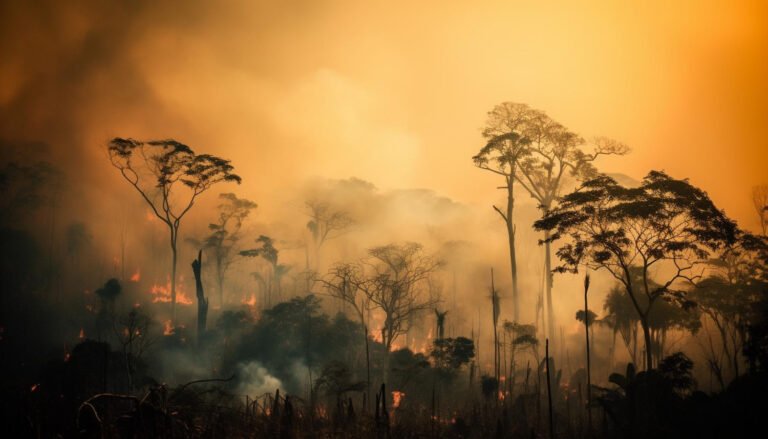The Lethal Consequences of Climate Change on the Great Barrier Reef
A report by the Climate Council titled Lethal Consequences: Climate Change Impacts on the Great Barrier Reef provides a detailed overview of the catastrophic effects of climate change on the world’s largest coral reef. The Great Barrier Reef has faced unprecedented mass bleaching events in 2016 and 2017, driven by marine heatwaves caused by rising sea surface temperatures. These back-to-back bleaching events have had devastating impacts on coral ecosystems, leading to significant coral mortality, a loss of marine biodiversity, and potentially irreversible changes in the composition of the reef.
The 2016 bleaching event, the worst ever recorded on the Great Barrier Reef, was largely concentrated in the northern section, affecting 93% of individual reefs between Port Douglas and the Torres Strait. During this event, nearly 30% of corals across the entire reef died, with fast-growing species like staghorns being particularly hard-hit. The combination of marine heat exposure, extreme weather events, and other local stressors has left large portions of the reef weak and vulnerable to further damage. The average coral cover in the central section of the reef, for example, dropped from 22% in 2016 to 14% by 2018.
Climate change has also increased the frequency and duration of marine heatwaves, contributing to more frequent bleaching events. The report notes that the return period for global bleaching events has decreased dramatically from 27 years in the 1980s to just 5.9 years today. The repeated occurrence of such events reduces the time available for corals to recover, making it increasingly difficult for the reef to maintain its structure and biodiversity.
The report emphasizes that unless there are deep cuts in greenhouse gas emissions, the Great Barrier Reef stands little chance of surviving in its current state. Local efforts to manage water quality and mitigate other stressors can help, but they are not enough to counteract the overarching threat posed by global warming. A 2°C rise in global temperatures will almost certainly lead to the collapse of warm water coral reefs worldwide. The authors stress that limiting warming to 1.5°C is critical for the survival of the reef and other coral ecosystems.
Other threats linked to climate change, such as increased tropical cyclone intensity and ocean acidification, further undermine the resilience of the reef. Ocean acidification, resulting from increased carbon dioxide absorption, makes it harder for corals to form calcium carbonate structures, thereby weakening their ability to grow and repair after bleaching events. Coral reefs are not only vital ecosystems, supporting thousands of marine species, but also provide significant economic value through tourism, estimated at $6.4 billion annually.
The report concludes by calling for urgent global action to reduce greenhouse gas emissions and limit temperature rise. It argues that the decisions and actions taken today will have long-term effects on the Great Barrier Reef’s survival. Protecting this iconic natural wonder requires a concerted effort from governments, industries, and individuals to address the climate crisis and reduce our collective carbon footprint.
Key Points
- Unprecedented Bleaching Events: The Great Barrier Reef experienced back-to-back mass bleaching events in 2016 and 2017, resulting in the death of nearly 30% of corals.
- Vulnerability of Coral Species: Fast-growing corals like staghorns were most severely affected, leading to a dramatic shift in reef composition.
- Increasing Marine Heatwaves: Rising sea surface temperatures have increased the frequency of marine heatwaves, reducing the time available for corals to recover.
- Climate Change as the Main Driver: Global warming, driven primarily by fossil fuel combustion, is the leading cause of coral bleaching and threatens the long-term survival of the reef.
- Urgent Need for Emission Cuts: To ensure the survival of the Great Barrier Reef, global warming must be limited to 1.5°C above pre-industrial levels through deep emissions cuts.
Summary
The Great Barrier Reef is under significant threat from climate change, with mass bleaching events in 2016 and 2017 leading to the loss of nearly 30% of coral. The report emphasizes the critical need to reduce greenhouse gas emissions to limit global warming to 1.5°C and prevent further degradation. Without urgent action, the future of the reef is uncertain, and it may face irreversible collapse due to repeated bleaching events, ocean acidification, and other climate-related threats.
Based on an article published by the Climate Council of Australia.







